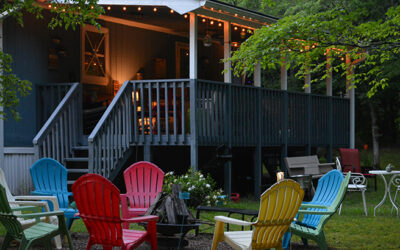There’s More to a Bubble Than Rising Home Prices

What truly causes a housing bubble and the inevitable crash? For the best explanation, let’s go to a person who correctly called the last housing bubble – a year before it happened.
“A bubble requires both overvaluation based on fundamentals and speculation. It is natural to focus on an asset’s fundamental value, but the real key for detecting a bubble is speculation…Speculation tends to chase appreciating assets, and then speculation begets more speculation, until finally, for some reason that will become obvious to all in hindsight, the ‘bubble’ bursts.
I have taken to calling the housing market a ‘bubble’.”
– Bill McBride of Calculated Risk calling the bubble back in April 2005
Where do we stand today regarding speculation?
There are two measurements that are used to determine the speculation in a housing market:
1. The number of homes purchased by an investor and
2. The number of homes being flipped (resold within a twelve-month period)
As compared to 2005, investor purchases are down dramatically (from 23% to 13%) and so is flipping (from 8.2% to 5.7%). McBride explains:
“There is currently some flipping activity, but this is more the normal type of flipping (buy, improve and then sell). Back in 2005, people were just buying homes and letting them sit vacant – and then selling without significant improvements. Classic speculation.”
What are the experts saying about speculation in today’s market?
DSNews recently ran an article which asked two economists to compare the speculation in today’s market to that in 2005-2007. Here is what they said:
Dr. Eddie Seiler, Chief Housing Economist at Summit Consulting:
“The speculative ‘flipping mania’ of 2006 is absent from most metro areas.”
Tian Liu, Chief Economist of Genworth Mortgage Insurance:
“The nature of housing demand is different as well, with more potential homeowners and far fewer speculators in the housing market compared to the 2005-2007 period.”
And what does McBride, who called the last housing bubble, think about today’s real estate market?
Sixty days ago, he explained:
“In 2005, people were just buying homes and letting them sit vacant – and then selling without significant improvements. Classic speculation. And even more dangerous during the bubble was the excessive use of leverage (all those poor-quality loans). Currently lending standards are decent, and loan quality is excellent…
I wouldn’t call house prices a bubble – and I don’t expect house prices to decline nationally like during the bust.”
Bottom Line
Speculation is a major element of the housing bubble formula. Right now, there are not elevated percentages of investors and house flippers. Therefore, there is not an elevated rate of speculation.
To view original article, please visit Keeping Current Matters.
Save Time and Effort by Selling with an Agent
Before you decide to sell your house yourself, let’s discuss your options so we can make sure you get the most out of the sale.
Demand for Vacation Homes Is Still Strong
There is still high demand for second getaway homes in 2021 even as the pandemic winds down.
Pre-Approval Makes All the Difference When Buying a Home
Every step you can take to gain an advantage as a buyer is crucial when today’s market is constantly changing.
5 Things Homebuyers Need To Know When Making an Offer
When it’s time to make an offer, it’s important to consider not just what you need, but what the seller may need too.
Don’t Wait To Sell Your House
If you’re thinking of putting your house on the market, don’t wait. A seller will always negotiate the best deal when demand is high and supply is low.
Hope Is on the Horizon for Today’s Housing Shortage
Despite today’s low inventory, there is hope on the horizon. As the country continues to reopen, more homes will be listed for sale.
The Right Expert Will Guide You Through This Unprecedented Market
Finding the right agent should be your top priority when you’re ready to buy or sell a home.
Home Price Appreciation Is as Simple as Supply and Demand
The reason prices continue to accelerate is that housing inventory is still at all-time lows while demand remains high.
In Today’s Market, Listing Prices Are Like an Auction’s Reserve Price
Today, the asking price is often becoming the floor of the negotiation rather than the ceiling.
Why You May Want To Cash in on Your Second Home
If you purchased a larger second home during the pandemic, will you continue to use it or should you sell and cash in?









